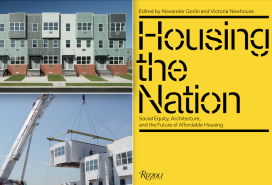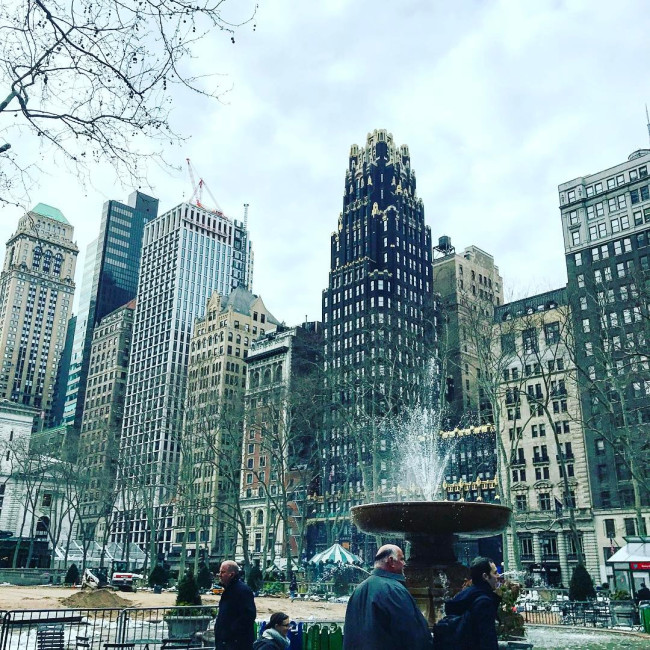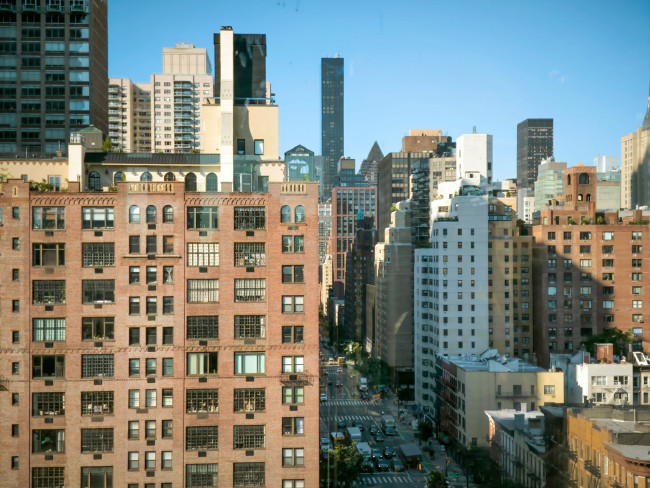What a second Trump presidency could mean for NYC buyers and sellers
- Economists predict the president-elect’s mass deportation and tariff policies will worsen inflation
- Raising the SALT cap could put more money in wealthier owners' pockets and increase purchasing power
- Deportations and tariffs could increase construction costs, hampering new development and renovations

Development could be stymied by deportations and new tariffs.
iStock
President-elect Donald Trump’s policies could hike construction and renovation costs for New York City condo, co-op, and townhouse buyers and sellers, while easing the tax burden of some New Yorkers under proposed changes to federal taxes.
Overall, Trump’s plans for massive deportations, lower taxes, and new tariffs have left real estate industry professionals and New York buyers and sellers uncertain about the housing market’s future.
“It’s a difficult market for consumers to get their arms around,” said Jonathan Miller, president and CEO of appraisal firm Miller Samuel. "There's still a tremendous amount of uncertainty…even our uncertainty is uncertain.”
Trump’s own policies remain in flux. For example, Republicans are at odds about how to change the state and local tax (SALT) deduction, and Trump’s plans to deport immigrants en masse could be hampered by uncooperative municipalities.
“Until we see what really happens, we don't know,” said Susan Abrams, broker at Coldwell Banker Warburg. “Any election year is always challenging.”
Read on for three ways the incoming Trump administration could impact NYC’s housing market.
All eyes on inflation and interest rates
Most economists agree that Trump’s plans to enact mass deportations of undocumented migrants and add tariffs on imported goods would make inflation worse, the Associated Press reported.
Higher inflation would make it unlikely that mortgage rates will drop significantly in 2025. Instead, rates could rise further, said Melissa Cohn, regional vice president of William Raveis Mortgage.
“Trump's policies on immigration, tariffs, and taxes are all inflationary, which means that rates go up because mortgage rates trend with the rate of inflation,” Cohn said.
If rates don’t fall, buyers waiting for a lower mortgage rate to finance the purchase of a condo or co-op will be in a tough spot, Miller said.
“I suspect there’s a higher probability of rates not falling, so timing a purchase around lower rates is probably a mistake,” Miller said.
Miller expected mortgage rates to “straddle 6 percent” next year, a far cry from 3 to 4 percent levels seen in pre-pandemic years.
Add a pinch of the SALT deduction
Trump advisors have floated raising the state and local tax (SALT) deduction that taxpayers who itemize their federal returns are allowed to take, an issue that's very important to New Yorkers.
Trump could raise the cap on the SALT deduction in 2025—he vowed he would "get SALT back" on a recent Truth Social post. His previous administration created a $10,000 ceiling on the formerly unlimited SALT deduction through the 2017 Tax Cuts and Jobs Act, which took effect the following year.
Trump’s advisors are reportedly considering doubling the cap on that deduction, though some Republicans are pushing for an even higher limit.
A higher cap could leave some owners with more money to spend on a new apartment, NYC Comptroller Brad Lander said. If the SALT cap were eliminated, for example, NYC households would stop paying around $7.5 billion in taxes to the federal government, according to Lander. (Of that $7.5 billion, about $7 billion is paid by households who make $200,000 or more per year, he added.)
“If people wind up with more money in their pocket because they're not paying as much federal government in taxes thanks to the SALT cap being raised or eliminated—and if tax rates decline overall—then you might see people who would have more to spend on housing,” Lander said.
A higher SALT cap would benefit wealthier New Yorkers the most, but many middle and high earners in states with high taxes would see additional savings on their tax bill, Lander said.
A potential construction slowdown
Trump’s plan to carry out the “largest deportation operation in American history” will likely slow housing construction, according to a report from the comptroller.
Lander estimates that there are more than 500,000 undocumented immigrants in NYC, with many working in construction and hospitality. The loss of those workers, coupled with tariffs on imported goods, would slow construction of new apartments, including rentals, Lander said.
Miller expected deportations to increase construction costs across the country.
“It would decimate the industry in terms of having adequate labor,” Miller said. “It's already a problem, so it would exacerbate an existing challenge.”
Higher construction costs could also hamper sales of units that need renovations, Abrams said. Co-op apartments in need of upgrades are already a tough sell to today's buyers who generally prefer renovated units because of how difficult and expensive it is to renovate an apartment. Higher construction costs will make these units even less attractive, Abrams added.
“Those units will struggle,” Abrams said. Buyers “understand that if the tariffs go up and we see inflation, the construction [cost] is going to be greater than” expected.
Trump has also suggested developing federal land to make room for more housing, but that policy wouldn’t impact NYC given the very small amount of federal land within the city’s limits.






























